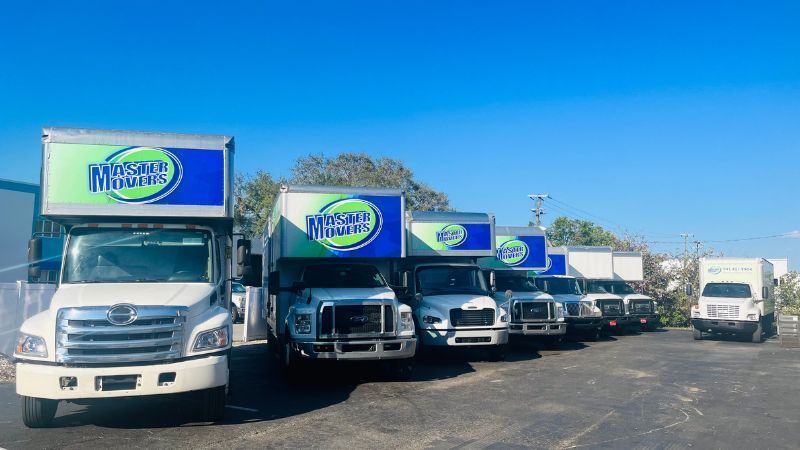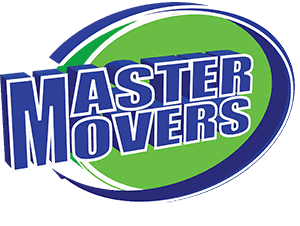Choosing the Right Residential Moving Company

Moving homes can be an exciting journey, but it also brings its own set of challenges, especially when it comes to choosing the right residential moving company. Making an informed choice can significantly reduce stress and ensure a smooth transition to your new home. At Master Movers, known fondly as "Movers With Manners," we pride ourselves on providing seamless and courteous moving services. This guide aims to arm you with all the information you need to select the best residential movers that meet your specific needs.
Understanding the Basics of Residential Moving Services
What Are Residential Moving Services?
Residential moving services encompass the array of services provided by moving companies specifically tailored towards households moving from one residence to another. Unlike commercial moving services which deal with business relocations and often involve handling sensitive equipment, residential moves usually deal with personal belongings and home furniture.
Varieties of Moving Services
Movers offer a variety of services that cater to different moving scenarios:
- Local Moving: Typically defined as relocations within the same city or metropolitan area.
- Long-Distance Moving: Involving moving across states or beyond regional boundaries.
- International Moves: These require coordination beyond just packing and unloading, including customs and international logistics.
- Full-Service Moves: These services handle everything from packing your belongings in your old home to unpacking them in your new one.
- Self-Service Moves: Here, the movers provide only the transportation of your belongings, while the packing and unpacking are managed by you.
Importance of Specialized Residential Services
Given the personal nature of home belongings, having specialty moving services is crucial. They ensure that your items are handled with care and respect, preventing damage and loss. Moreover, specific tools and strategies used by residential movers can help make the process smoother and less hectic.
Preparing to Choose the Right Movers
Moving Checklist: Preparation is Key
Before diving into selecting a mover, it's important to prepare. Here’s a quick checklist to get you started:
- Inventory Your Home: Knowing exactly what needs to be moved will help in getting accurate quotes from moving companies.
- Decide on Your Moving Date: This helps in checking the availability of movers and might affect the cost of the move.
- Budget for Your Move: Understand how much you can spend on moving services to guide your choice of movers.
Creating an Effective Moving Timeline
A well-planned timeline can alleviate much of the stress associated with moving. Here’s a simple timeline to consider:
- 3 Months Before Move: Research and gather information on moving companies.
- 2 Months Before Move: Start decluttering your home and finalizing your inventory.
- 1 Month Before Move: Obtain quotes, select your mover, and begin packing if you're doing self-service.
- 1 Week Before Move: Confirm arrangements with your movers and complete packing.
- Moving Day and Beyond: Oversee the moving process and begin unpacking at your new home.
How to Assess and Choose Moving Companies
When it comes to selecting the right residential movers, several key factors should be taken into consideration to ensure that your belongings are in safe hands and that the move proceeds smoothly.
Factors to Consider When Selecting a Mover
- Reputation: A mover’s reputation is critical. It's advisable to read through online reviews and testimonials, and if possible, speak directly to past customers.
- Services Offered: Ensure that the moving services provided match your specific moving needs, whether you require full-service packing and unpacking, storage options, or specialty services for items like pianos or fine art.
- Cost: Get detailed quotes from several movers to compare prices. Be wary of quotes substantially lower than market rates as these could be indicative of hidden fees or a lack of quality service.
- Availability: Check that the mover has availability around your planned moving date, especially if you are moving during a busy season.
Evaluating Mover Credentials and Reputation
A reliable moving company should have the necessary licenses and insurance to operate legally and protect your belongings. Here’s what to look for:
- License Numbers: In the U.S., legitimate interstate movers must have a USDOT number issued by the Department of Transportation.
- Insurance: Ensure that the movers are insured to cover any potential damages to your belongings during the move.
- Professional Affiliations: Membership in professional organizations like the American Moving and Storage Association (AMSA) can be a good sign of a company’s reliability and adherence to industry standards.
Detailed Cost Analysis
Understanding the structure of moving costs can help you budget more effectively and avoid surprises:
- Estimate Type: Is the estimate non-binding, binding, or not-to-exceed? Each has implications for the final price you will pay.
- Additional Fees: Ask about potential extra charges, such as for moving items up and down stairs, long carry charges, or if the moving truck cannot be parked near your front door.
Questions to Ask Before Hiring a Mover
To make an informed decision, you should ask potential movers several important questions:
- How long has your company been in the moving business?
- Are your estimates binding or non-binding?
- Are there any additional fees I should be aware of?
- Can you provide references from previous clients?
- What is your claim process for damaged or missing items?
Red Flags and Common Pitfalls in Choosing Movers
Awareness of common red flags can protect you from moving scams or poor service:
- Suspiciously Low Quotes: These can be a lure to attract customers before prices are ramped up with hidden fees.
- No Written Estimates: Avoid movers who refuse to provide a formal written estimate.
- Cash-Only Deals: This can be a sign of a lack of professionalism or an unlicensed company.
- Lack of Physical Address or Contact Info on the Website: Legitimate companies always have a physical office and a transparent way to be contacted.
Making the Final Decision
Choosing the right mover is a balance of cost, services, and trust:
- Comparison: Weigh the pros and cons of each mover you are considering based on the information you have gathered.
- Trust Your Instincts: Consider which company you felt most comfortable communicating with. Good communication is crucial for a stress-free move.
Preparing for Moving Day with Your Chosen Mover
Successful moving day preparation is crucial for a smooth transition:
- Confirm all details with your movers a week before and again a day before the move.
- Ensure all personal items and important documents are kept separately from the items to be moved.
- Prepare your new home for moving in by ensuring that paths are clear and utilities are set up.
Last-Minute Tips for a Smooth Moving Day
- Double-check that you have contact numbers for your moving company.
- Prepare refreshments and keep a toolset handy for any immediate assembly needs or adjustments.
After the Move: Evaluating the Moving Experience
Once the dust settles after your move, taking a moment to reflect on and evaluate the moving process is essential. This evaluation plays a crucial role not only in your own understanding of how the move went but also offers valuable feedback for the moving company and future movers.
Assessing the Success of Your Move
Here are some factors to consider when evaluating your moving experience:
- Timeliness: Did the movers arrive and deliver your belongings within the promised time frame?
- Condition of Belongings: Were your items handled with care? Check for any damages or missing items.
- Service Quality: Were the movers professional, polite, and helpful throughout the process?
- Value for Money: Considering the overall experience, was the service worth the cost?
Feedback and Review Mechanisms
After assessing, it's beneficial to provide feedback:
- Direct Feedback: Contact your moving company directly to discuss your experience and any concerns.
- Online Reviews: Share your experience on platforms like Google, Yelp, or the company’s website to help future customers make informed decisions.
- Referrals: If your experience was positive, referring the company to friends and family can be a great way to show your appreciation.
Your Next Steps in Your New Home
Moving in is just the beginning of your journey in your new home. Here are some crucial post-move steps to help you settle in comfortably and efficiently:
Settling Into Your New Environment
- Unpacking: Prioritize essential spaces like the kitchen and bathroom to make your house functional.
- Home Inspection: Do a thorough walk-through to identify any immediate repairs or improvements needed.
- Neighborhood Acquaintance: Take some time to explore your new community, finding local amenities such as grocery stores, hospitals, and schools.
Utilizing Additional Services from Your Movers
Some moving companies, including Master Movers, offer additional post-moving services that can be incredibly helpful:
- Storage Solutions: If you're downsizing or need time to settle, using the mover’s storage services can provide a convenient solution.
- Furniture Assembly: Some movers offer services to help set up furniture a quick way to make your new place feel like home.
- Cleanup Services: Post-move cleanup services can ease the burden of clearing moving debris and help you focus on settling in.
Seamless Transitions Made Possible with Master Movers
Choosing the right residential movers is a significant step toward a successful and stress-free move. By following the guidelines and pointers shared in this guide, you can make informed decisions that lead to a positive moving experience. Remember, with
Master Movers a moving company located in Venice, FL, you are choosing a service that prides itself on professionalism and courtesy, ensuring your move is as smooth and efficient as possible. We hope this guide has provided you with valuable insights into choosing and working with residential movers. Whether you are planning a local, long-distance, or an international move, understanding these processes and selecting the right help can make all the difference.
Our Latest Blog





